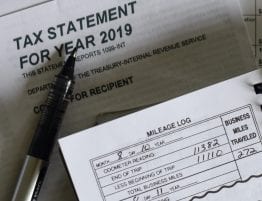
Now that tax season has ended, many hard-working Americans may be overwhelmed by a hefty tax bill. Fortunately, the IRS offers an Offer in Compromise (OIC) option, which allows taxpayers to settle their tax debts for less than the total amount owed. However, qualifying for an OIC is not always easy, and it’s essential to understand the process before considering this option.
Read on to learn all you need to know about what an OIC is and if you qualify.
The 2022 tax filing deadline has passed, so it is essential that you know what your options are and act quickly. If you’re ready to tackle your back taxes today, schedule your free consultation now.
What is an Offer in Compromise (OIC)?
An Offer in Compromise is a tax settlement agreement that permits taxpayers to pay off their tax debts for less than the full amount owed through negotiation with the IRS. The IRS may accept an OIC if they believe that the amount offered by the taxpayer is the most they can expect to collect within a reasonable period. The OIC option can be a viable solution for those struggling to pay off their debts, but it’s important to know that it’s only the right choice for someone sometimes.
Qualifying for an Offer in Compromise
The IRS has strict eligibility requirements for OICs. Taxpayers must prove to the IRS that they cannot pay their entire tax debt through a lump sum payment or a payment plan. The IRS evaluates the taxpayer’s income, expenses, assets, and future earning potential to determine eligibility. This can be a complicated and lengthy process, and the IRS may request extensive financial documentation to support the case.
Even if a taxpayer qualifies for an OIC, it’s not a guaranteed solution. For example, the IRS may reject the offer if they believe the taxpayer can pay their tax debt through other means, such as selling assets or borrowing money. Additionally, if the IRS accepts an OIC, it may require the taxpayer to pay off the negotiated amount quickly, which could be financially challenging for some.
Key Facts You Need to Know About Offer in Compromise
Eligibility requirements are strict: The IRS has strict eligibility requirements for OICs. To qualify, the taxpayer must prove that they cannot pay their entire tax debt through a lump sum payment or a payment plan. The IRS evaluates the taxpayer’s income, expenses, assets, and future earning potential to determine eligibility.
Detailed financial documentation is required: Applying for an OIC involves providing extensive financial documentation to support the case, which can be a complicated and lengthy process.
It requires negotiation: An OIC is a negotiation between the taxpayer and the IRS. The taxpayer proposes an offer for the IRS to accept, and the IRS will evaluate the offer based on its ability to collect the full amount owed.
It’s not a guaranteed solution: While an OIC can be an excellent solution for some, it’s important to know that it’s not always the right choice and can be difficult to qualify for. The IRS may reject an OIC if they believe that the taxpayer can pay their tax debt through other means, such as selling assets or borrowing money.
It can result in a short repayment period: If the IRS accepts the OIC, it may require the taxpayer to pay off the negotiated amount in a short period, which could be financially challenging for some.
It can be a viable solution for those with financial difficulties: An OIC can be a viable solution for taxpayers who are struggling to pay off their debts, as it allows them to settle their tax debts for less than the total amount owed.
Professional help can be valuable: Given the complexities of the OIC process, professional help from experienced tax professionals like Justice Tax can be valuable. Our dedicated team can advocate for your rights as a taxpayer, negotiate with the IRS, and guide you through the process at every step.
Understanding these key facts about an Offer in Compromise can help taxpayers make informed decisions when considering this option for resolving their tax debt.
Justice Tax: Your Partner in Resolving Tax Debt
Navigating the tax system can be overwhelming, especially when dealing with back taxes. This is where Justice Tax comes in. Our team of experienced tax professionals has helped over 20,000 taxpayers resolve their tax debt and gain freedom from the IRS.
We understand that every taxpayer has a unique financial situation, and we are committed to exploring all options relevant to their case. Our services include negotiation with the IRS, installment agreements, penalty abatements, and more. Our team will guide taxpayers through the process at every step, ensuring they understand their options and feel confident in their decisions.
Don’t Navigate Tax Season Alone
If you’re struggling with back taxes, you don’t have to navigate the tax system alone. Justice Tax is here to help. Our team of trusted tax professionals is dedicated to advocating for your rights and working to resolve your tax debt. Contact us today to schedule a consultation and take the first step toward financial freedom.








